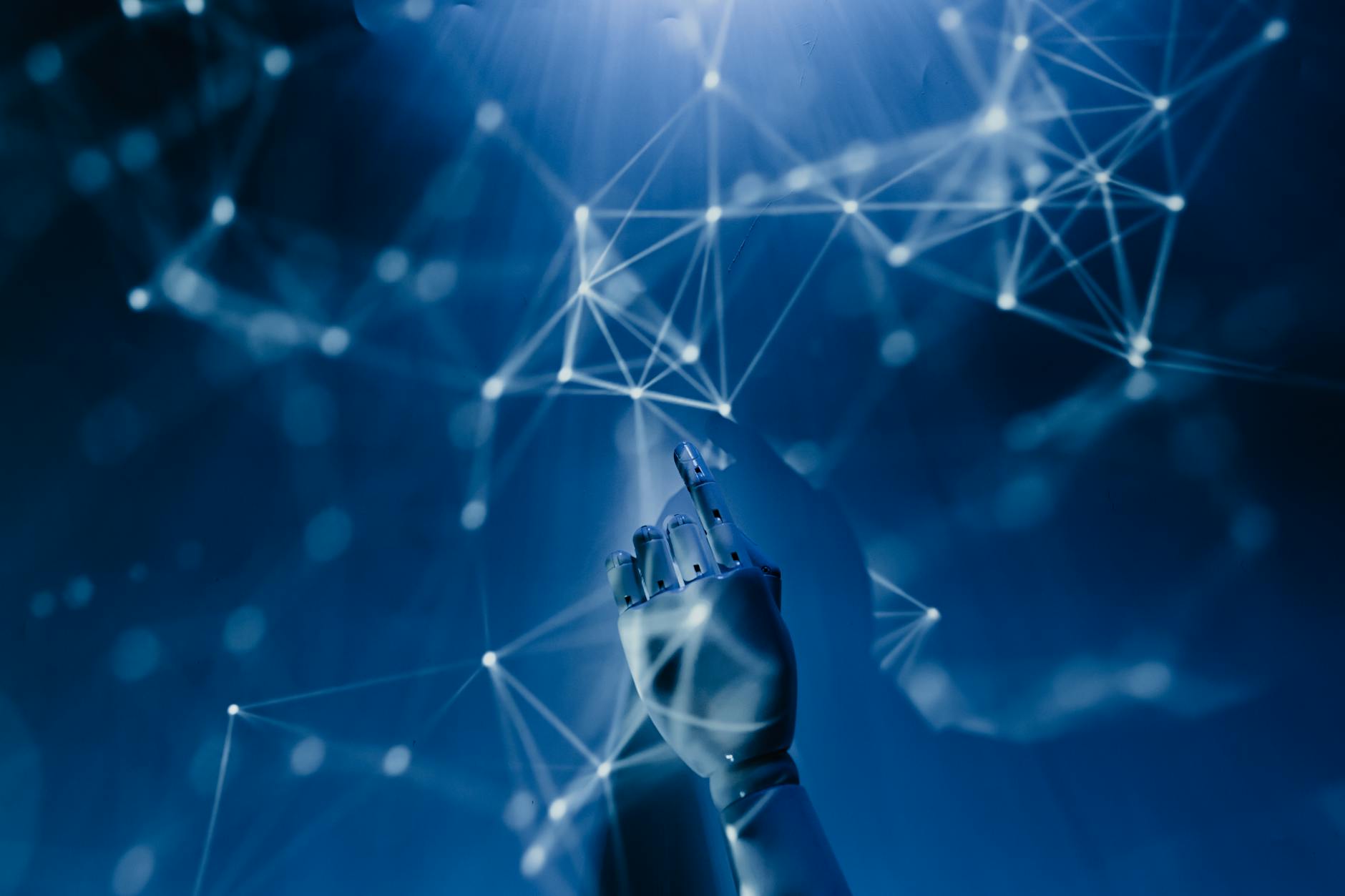
Image courtesy of Tara Winstead via <a target="_blank" rel="noopener noreferrer" href="https://www.pexels.com/photo/robot-pointing-on-a-wall-8386440/">Pexels</a>
Dive into the cutting-edge world of robotics and discover the incredible advancements shaping our future. Are you ready for tomorrow?
Table of Contents
The Future is Now: Exploring the World of Robotics
What is Robotics and Why Does It Matter?
Robotics is no longer just a concept from science fiction movies – it’s a reality that is shaping the world we live in. In simple terms, robotics refers to the design, creation, and operation of robots to perform tasks that were once only possible for humans. These robots can range from simple machines helping with household chores to complex machinery revolutionizing industries such as manufacturing, healthcare, and agriculture.
How Robotics is Transforming Industries
One of the key aspects of robotics is automation, which is the process of using robots or computer algorithms to perform tasks that would traditionally be carried out by humans. This allows for increased efficiency, precision, and speed in various industries. For example, in manufacturing, robots are used to assemble products on assembly lines at a much faster pace and with higher accuracy than human workers. In healthcare, surgical robots assist surgeons in performing complex procedures with minimally invasive techniques, leading to better patient outcomes.
The Role of Robotics in Everyday Life
Beyond the industrial and medical fields, robotics plays a role in everyday life in the form of consumer robots. These are robots designed to make our lives easier and more convenient. Think about robotic vacuum cleaners that roam around your house cleaning up messes or drones that deliver packages to your doorstep. These innovations are becoming increasingly common as technology advances and robots become more accessible to the general public.
The Ethical Considerations of Robotics
As robotics becomes more integrated into society, there are ethical considerations that need to be addressed. For example, there are concerns about the potential impact of automation on the workforce, leading to job displacement and inequality. There are also questions about privacy and data security when it comes to using robots equipped with artificial intelligence to gather personal information. It’s important for regulators and technologists to work together to create ethical guidelines and regulations to ensure that robotics are used responsibly and for the benefit of society as a whole.
| Category | Description | Examples |
|---|---|---|
| Industrial Robotics | Robots used in manufacturing and industrial settings to automate tasks | Robotic arms in car assembly lines |
| Medical Robotics | Robots used in healthcare for surgeries, rehabilitation, and diagnostics | Da Vinci Surgical System for minimally invasive surgeries |
| Autonomous Vehicles | Vehicles that can operate without human intervention | Tesla Autopilot, Waymo self-driving cars |
| Humanoid Robots | Robots designed to resemble and perform tasks like humans | ASIMO, Sophia the robot |
| Drones | Unmanned aerial vehicles used for various applications | DJI Phantom, Amazon Prime Air drones |
The Future of Robotics
Looking ahead, the possibilities for robotics are endless. Advancements in artificial intelligence, machine learning, and sensor technology are driving the development of more sophisticated and capable robots. We can expect to see robots that can learn from their environment, adapt to new situations, and even interact with humans in more nuanced ways.
As we continue to explore the world of robotics, it’s important to approach these innovations with a sense of wonder and curiosity, while also remaining mindful of the potential impact they can have on society. By embracing the future of robotics with a thoughtful and ethical approach, we can work towards a world where technology enhances our lives in meaningful and positive ways.
FAQs
What are the main applications of robotics?
Answer 1: Robotics is used in various industries such as manufacturing, healthcare, agriculture, and even consumer products like robotic vacuum cleaners and drones.
Are robotics replacing human jobs?
Answer 2: While robotics can automate certain tasks, they also create new job opportunities in fields like robotics engineering and maintenance.
How are ethical concerns addressed in robotics?
Answer 3: Ethical guidelines and regulations are being developed to ensure responsible use of robotics, addressing issues like job displacement, privacy, and data security.
What does the future hold for robotics?
Answer 4: The future of robotics is exciting, with advancements in AI and machine learning leading to more sophisticated and interactive robots that can enhance our lives in various ways.




